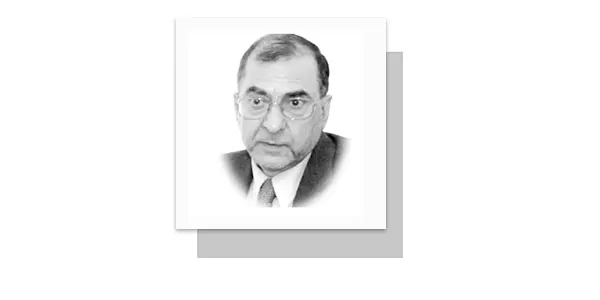The United Nations Sixth Committee held its seventy-eighth session on October 3, 2023, and stressed ‘National, Regional, International Efforts Crucial in Combating Global Threat Of Terrorism.’ Some delegates called attention towards addressing the underline ‘causes of terrorism and violent extremism.’ Chinese delegate said that the root cause of terrorism includes, “a slow economic recovery, lacklustre implementation of the 2020 Agenda, rising geopolitical tension and intensification of regional conflicts.”
Let us analyze the above statements dispassionately. The issue of terrorism and human rights has long been a concern of the United Nations human rights mechanism, but it has become more urgent following the September 11 tragedy that took place in the United States. Terrorism needs to be condemned in all its shades and manifestations, no ifs or buts.
While condemning terrorism unambiguously, Mr. Sergio De Melo, the then High Commissioner for Human Rights, emphasized that human rights norms must be respected, even in states of emergency. He said that “the suggestion that human rights violations are permissible in certain circumstances is totally wrong.”
Former Secretary-General Kofi Annan remarked at a special meeting of the Security Council’s Counter-Terrorism Committee, on March 6, 2003, “Our responses to terrorism should uphold the human rights in all circumstances because that is exactly what terrorists would like to destroy.
In her report on “Human Rights” former High Commissioner for Human Rights, President Mary Robinson, reminded States that “an effective international strategy to counter terrorism should use human rights as its unifying framework”.
Dr. Kalliopi K. Koufa, an Emeritus Professor of Law of the Aristotle University of Thessaloniki and former ‘Special Rapporteur on Human Rights and terrorism of the United Nations Sub-Commission on the promotion and protection of human rights’ said that ‘there is a disturbing tendency to categorize ordinary criminal activity as terrorism.’
The Special Rapporteur made the distinction between armed conflict and terrorism, particularly when the issue of self-determination is the part of the discussion.
The global campaign against terrorism should not lead us into a campaign to defend the tyrant regimes and illegal military occupations. Many forces in the world are salivating at the prospect of the United States power being used to prop up the brutal regimes they have foisted on peoples against the popular will. Yet, that is exactly what is happening. By supporting the US in its campaign against global terrorism, many governments are misusing their support to crush the genuine freedom movements. A prime example is Kashmir where 900,000 Indian armed forces have brought Kashmir ‘to the brink of extinction’ as suggested by Dr. Gregory Stanton, Chairman, ‘Genocide Watch’. The world powers know that the struggle of the people of Kashmir for the restoration of their right to self-determination was accepted by the United Nations.
It is worth mentioning here that when the Kashmir dispute erupted in 1947-1948, the United States championed the stand that the future status of Kashmir must be ascertained in accordance with the wishes and aspirations of the people of the territory. The United States was the principal sponsor of the resolution # 47 which was adopted by the Security Council on April 21, 1948, and which was based on that unchallenged principle.
Following the resolution, the United States as a leading member of the United Nations Commission for India and Pakistan (UNCIP), adhered to that stand. The basic formula for settlement was incorporated in the resolutions of that Commission adopted on August 13, 1948, and January 5, 1949.
The voice of President Biden was loud and clear when he said that “We will lead not merely by the example of our power but by the power of our example,” then on September 19, 2023 during his speech to the United Nations General Assembly, he declared “If we abandon the core principles of the UN charter to appease an aggressor, can any member state in this body feel confident that they are protected?” It is worth mentioning here that Antonio Guterres, the Secretary General has on multiple occasions stated clearly that the Kashmir issue has to be resolved under UN Charter. And this is the same UN Charter which President Biden wants to protect and India is defying.
It was astonishing that President Biden refused to take up the issue of genocide in Kashmir and human rights violations in India when he invited Prime Minster Modi to the White House on June 22, 20203, despite the fact that the (former) President Obama has sent the message to President Biden on CNN, “I do think that it is appropriate for the President of the United States, where he or she can, to uphold those principles and to challenge — whether behind closed doors or in public — trends that are troubling.
And so, I’m less concerned about labels than I’m concerned about specific practices,” President Obama further added that “Part of my argument would be that if you do not protect the rights of ethnic minorities in India, then there is a strong possibility India at some point starts pulling apart. And we’ve seen what happens when you start getting those kinds of large internal conflicts.”
We are dismayed that the horrors of repression for which the people of Kashmir suffer have added two other circumstances, each cruelly adverse. One is the apathy of the world powers at large, including governments and organizations that otherwise are justly proud of their championship of democracy and human rights.
The second is the fog of myths and evasive arguments currently surrounding India’s wrongful occupation of Kashmir. We were astonished that not a single member of the Sixth Committee rebuked Ms. Kajal Bhat, the Indian delegate on October 3, 2023, when she stated, “her country’s sovereignty and territorial integrity are non-negotiable. The Union Territories of Jammu and Kashmir and Ladakh are an integral part of India,” which is not true.
The writer is the Chairman, World Forum for Peace and Justice.
—The writer is the Secretary General, Washington-based World Kashmir Awareness Forum.
Email: [email protected]










